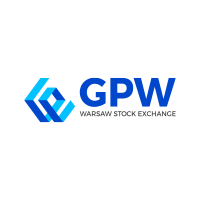Mercor is exposed to a number of internal and external risks related to running a business, the most important of which are:
■ Economic situation in cubature and high-rise construction. The Company's clients are mainly general contractors. The weaker economic situation in the construction industry may translate into a decrease in demand for the Company's products/services and deterioration of financial results.
■ Prices of production materials. An increase in the prices of production materials in relation to the planned level at the time of submitting the offer may result in an increase in costs and deterioration of the Company's profitability.
■ Availability of significant raw material resources. In its production process, the Company mainly uses steel, aluminum and polycarbonate. Lower availability of raw materials may adversely affect the Company's ability to fulfill the signed contracts and cause an increase in the prices of these raw materials.
■ War in Ukraine. The ongoing armed conflict between Russia and Ukraine has a direct and indirect impact. The indirect impact is a possible change in investors' moods and preferences, increase in prices and problems with the availability of production and energy raw materials, potential disruptions in supply chains. In addition, Mercor holds a 55% share in the share capital of the company in Ukraine (TOB MERCOR UKRAINA sp. z o.o.) and a 55% share in the share capital of the company in Russia (OOO Mercor-PROOF LLC). Loss of control or other unfavorable events may result in a write-off, showing a loss in the financial statements and loss of markets.
■ Change in interest rates. Mercor has debt due to credits, loans and finance leases. An increase in interest rates may result in an increased cost of servicing this debt.
■ Changes in exchange rates. The Group has its branches and production plants abroad and concludes transactions in currencies other than the functional one. The Group uses hedging by concluding forward transactions, but it is not possible to completely eliminate the impact of changes in exchange rates.
■ Inflation rate. Higher prices may adversely affect the Company's profitability. In addition, higher inflation may increase employees' wage expectations.
■ Counterparty credit risk. In the event of a deterioration in the liquidity situation of customers, the Company may experience problems with recovering receivables on time.
■ Availability of workers with appropriate qualifications. The company provides its customers with ready-made solutions in the field of fire protection in buildings, for which it is necessary to have adequately qualified employees. The shortage of employees may adversely affect the ability to implement an appropriate number of projects and decrease revenues.
■ Risk of unfavorable tax decisions. There is a risk that the correctness of the calculated taxes will be questioned by the tax authorities and a risk of issuance of decisions unfavorable to the Company













![Warsaw Stock Exchange: Brand24 (B24) - 1Q23 financial results Turbulent Q2'23 Results for [Company Name]: Strong Exports Offset Domestic Challenges](/uploads/articles/2022-FXMAG-COM/GPWA/gpw-s-analytical-coverage-support-programme-wse-2-6311cd4191809-2022-09-02-11-30-41-63175bda84812-2022-09-06-16-40-26.png)









![Warsaw Stock Exchange: Brand24 (B24) - 1Q23 financial results Turbulent Q2'23 Results for [Company Name]: Strong Exports Offset Domestic Challenges](https://www.fxmag.com/media/cache/article_small_filter/uploads/articles/2022-FXMAG-COM/GPWA/gpw-s-analytical-coverage-support-programme-wse-2-6311cd4191809-2022-09-02-11-30-41-63175bda84812-2022-09-06-16-40-26.png)


